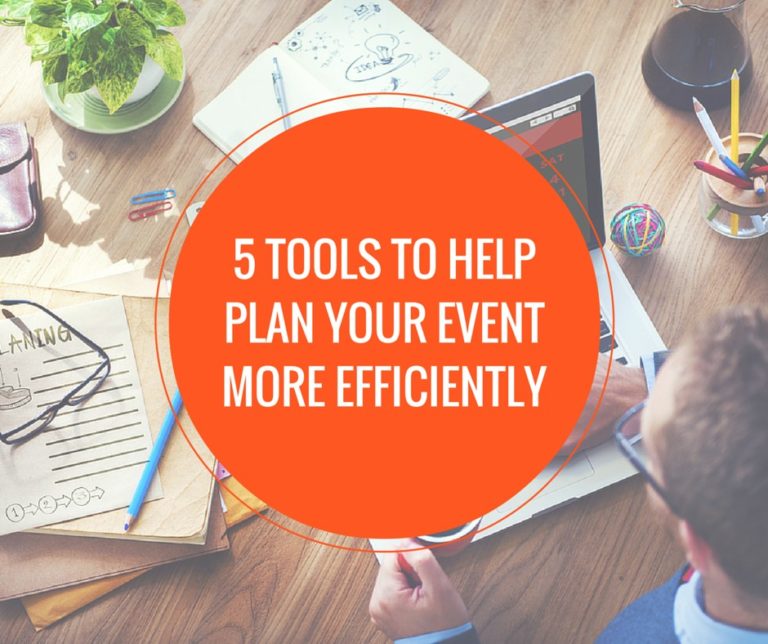Coordinating events requires dedication, effort, and time. Event planners often spend countless hours obsessing over every detail to create the best possible function. But how can you tell if your event is a hit or flop? Measuring event success allows you to assess your performance and learn how to make future events better.
Why Is Measuring Event Success Crucial?
Event planners often focus all their energy on the tasks they must complete before and during functions. However, taking time for post-event reflection is vital to event planning.
Measuring event success lets you take a step back and objectively assess if your event met your goals. Planners often feel satisfied and ready for a break after a function, especially if their attendees respond positively. However, you may realize that your event wasn’t quite as successful as it seemed after measuring your performance.
For example, your evaluation might reveal that you didn’t achieve your goals of selling $100,000 in merchandise and attracting more sponsors. Based on this data, you could reevaluate your plan for the next event and take steps to increase your success. Or, if you did meet your goals, you can raise the bar higher next time so you continuously improve.
Assessing event performance also allows you to identify and play to your strengths. You might discover that your social media marketing efforts doubled your attendance or that event attendees loved a specific vendor. You can use this invaluable information to coordinate more successful events in the future.
Additionally, measuring event performance enables you to create compelling pitches for future event sponsors. Companies may be more eager to invest in your events if you have concrete evidence of past success.
11 Best Practices for Event Planning to Ensure a Successful Event
Anyone can plan an incredible event with the proper knowledge and tools. These top practices will help you coordinate a great function and gather data to assess your success.
1. Set Event Goals and KPIs for Success
You can’t measure your event’s success if you don’t have a clear idea of what you hope to achieve. Creating SMART goals helps you define your objectives. This term stands for Specific, Measurable, Attainable, Relevant, and Time-Bound. Examples of SMART goals include growing your social media following and increasing attendee satisfaction.
Next, identify the key performance indicators (KPIs) that you’ll use to evaluate if you met your objectives. For example, you could assess the effectiveness of your social media marketing campaign by gathering data on followers and post engagement. Likewise, to measure attendee satisfaction, you could measure event KPIs like social media mentions and merchandise sales.
2. Create a Virtual Dashboard for Event Metrics
Tracking event metrics by yourself can be complicated and time-consuming. Events.com’s event management software automatically gathers KPIs and displays them in a customizable dashboard. This feature lets you get a quick snapshot of your event’s performance and generate reports.
3. Evaluate Marketing Campaigns Conversion and ROAS
Planners use numerous tactics to market events, ranging from quirky social media posts to old-school billboards. Most people try multiple methods simultaneously to expand their reach, but this approach can make it challenging to determine which marketing campaigns are most successful. You might wonder if your viral Instagram post actually increased ticket sales or if anyone opened your emails.
Collecting event marketing KPIs reveals which campaigns have the highest conversion rates. For instance, you could track how many people registered for your event after viewing advertisements on various social media platforms. You can also monitor metrics like the number of people who click links to event sponsors and reshare your posts.
This data also lets you calculate the return on ad spend (ROAS), which refers to the revenue generated by each marketing method. If one technique leads to more engagement and revenue than others, you could focus on that strategy for future events.
4. Analyze Attendance and Engagement Metrics
Event attendance and engagement are two of the most critical metrics of success. The number of participants your event attracts directly impacts revenue, merchandise sales, and many other factors.
Event management software lets you track tickets sold, the number of checked-in attendees, and how much time participants spend in your venue. You can also collect demographic information to see which audiences respond most positively to your event. For instance, if you discover most attendees at your marathon are aged 18 to 25, you can tailor your marketing for future events accordingly.
You can also monitor how people engage with online or hybrid events by evaluating virtual event KPIs. Examples of useful metrics include the number of people who log into virtual events and post questions in the chat.
5. Analyze Social Media Activity and Media Coverage
Successful events often get coverage from traditional media outlets, such as local newspapers and television stations. Similarly, satisfied event attendees frequently post about their experiences on social media. An event app like Events.com can help you monitor media coverage and get insights into how others perceive your event.
6. Compare Benchmark Data and Industry Standards
People often say comparison is the thief of joy, but seeing how you match up to your competitors is a helpful way to measure event success. Professional organizations often publish benchmark data, such as the average number of event sponsors and ticket sales. Additionally, you can use social media posts, reviews, and other publicly-available data to assess your direct competitors’ performance.
This information can help you identify your strengths and weaknesses. Say you discover that your festival only sells half as many tickets as a competitor’s event. You could compare the two events to identify the secret to your competitor’s success and emulate their approach for future events.
7. Unveil the Influence of Event Hashtags
An event hashtag is a powerful social media marketing tool. A short, catchy hashtag contributes to your event and helps attendees form online communities. Additionally, you can use your hashtag to track how people engage with your event on social media.
8. Measure Participant Satisfaction with Feedback and Testimonials
Every planner wants attendees to leave their event feeling fulfilled and happy – and ready to sign up for the next event. Post-event surveys and testimonials allow you to determine if you’ve achieved this goal. Tools like Google Forms and SurveyMonkey let you design and distribute online surveys to attendees. You can also solicit testimonials through social media and email.
Surveys and testimonials allow participants to share what they liked and disliked about your event. You can also ask attendees to suggest ways you can improve future events.
9. Evaluate Financial Success and Return on Investment (ROI)
Return on investment (ROI) is an essential KPI for events. This term refers to the financial and social value that your event generates.
You can calculate your event’s financial ROI using a simple formula: [Total revenue] – [amount invested] / [amount invested] x 100. If you earned $100,000 but invested $80,000, your ROI would be 25%, which indicates that you have plenty of room for improvement. You could boost your ROI for future events by cutting expenses or increasing revenue.
ROI also covers other kinds of value that are harder to quantify. Say you want to increase brand loyalty with your events. You could use KPIs like the popularity of your event hashtag and repeat attendees to measure your branding ROI.
10. Assess the Impact on Brand Awareness and Reputation
A successful event increases brand awareness and strengthens your organization’s reputation. Perhaps you want to cement your role as an industry leader by coordinating a conference. You could use KPIs like media coverage from industry publications and participant reviews to see how your event influences your reputation.
Other tools that you can use to evaluate how your event impacts brand awareness include surveys, social media mentions, and interviews with attendees.
11. Learn from Past Events to Improve Future Ones
Coordinating events is an inexact science that requires a combination of knowledge, tools, and luck. Even the most experienced planners occasionally make mistakes, so don’t despair if your event isn’t as successful as you hoped. Remember that every past event is a learning opportunity that you can use to make the next one better.
Measuring event success is the most effective way to pinpoint factors that contributed to or hindered your event’s success. Use the insights you gain to develop a plan for your next event. For instance, if you discover many participants were disappointed in your concert venue’s acoustics, you can switch locations.
Simplify Event Management with an All-In-One Event Management Platform
Event planners are an ambitious bunch. All professionals want to plan successful events that generate an excellent ROI, satisfy participants, and attract positive brand attention. Measuring event success helps ensure you meet your goals and gives you the knowledge to improve future endeavors.
However, collecting and analyzing dozens of in-person and virtual event KPIs can become overwhelming, especially when you’re busy with other event planning tasks. Events.com’s comprehensive event management software enables you to evaluate performance and make informed decisions. This convenient tool gathers data on marketing, referrals, event registration, ticket sales, and much more. Contact us today to schedule a free demo with our expert sales team and learn how Events.com can help you achieve consistent and demonstrable success.




